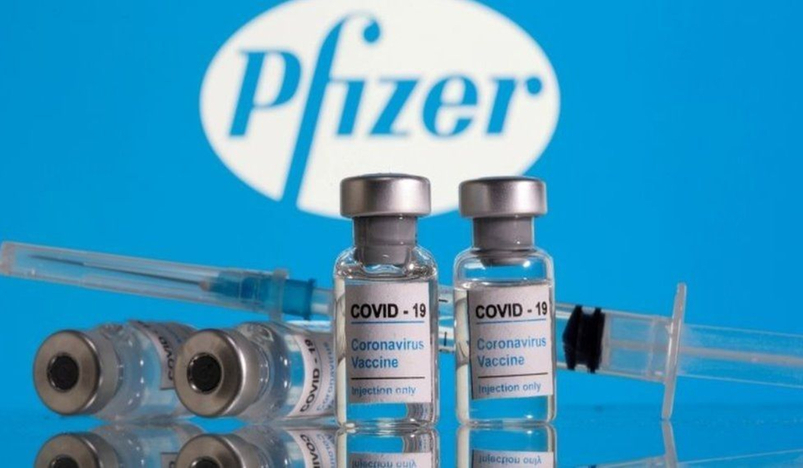
Pfizer-BioNtech
The uncontrollable virus that erupted on the globe’s face resulted in a perturbation for all humankind with a quest to prevent further spread and invent vaccines. Covid-19 flared up from China’s Wuhan city and now is witnessed across the whole world with its deadly outcome as people are tussling back to normalcy. In such a critical period, the Pfizer vaccine was introduced to combat this group of RNA viruses. However, this vaccine is not approved or licensed to use constantly by the U.S. Food and Drug Administration (FDA) but has been given the authorization for emergency usage by the FDA under an Emergency Use Authorization (EUA) for the prevention of coronavirus pandemic. Let us discuss some of the common questions about the vaccine.
What’s contained in the vaccine?
The active ingredient included in this messenger RNA (mRNA) vaccine is both synthetic or chemically produced, components and enzymatically produced from congenital substances like proteins and has no live virus. Pfizer’s inactive ingredients also contain potassium chloride, monobasic potassium, phosphate, sodium chloride, dibasic sodium phosphate dehydrate, and sucrose, along with other small amounts of ingredients.
How effective is the vaccine?
The Pfizer vaccine is believed to be 95 percent effective as per various trials and studies. Around 42,000 people were tested during the stage 3 trials of the vaccine. Half of them received an experimental vaccine and the rest got a placebo. A total of 170 people were contracted with the virus and only eight of them were in the vaccine group. The rest 162 were given the placebo which results in about 5 percent in the vaccination group and hence the figure of 95 percent comes in. According to World Health Organization (WHO), this is a very healthy percentage and they stated that they would be jubilant even if the result was just 50 percent.
Are there any allergies to the vaccine?
As per the Centres for Disease Control and Prevention (CDC) recommendation, there were no such tests conducted with people who suffer mild discomforts, chronic illness, or severe allergies. Although there is no signal of a serious allergic condition during the clinical trials, many reports regarding severe allergic reaction came forward during the massive testing outside of clinical trials. A proper confirmation cannot be made at the moment as Pfizer is still observing and reviewing the allergic reactions with the health officials.
Will there be any side-effects?
There can be sometimes but very mild. During the trial, the vaccine was well received and capable of tolerance by many people. According to an independent data monitoring committee, there were no serious harm or side effects shown. The common vulnerable side effects revealed were headache and fatigue.
Is it advisable for pregnant women?
As per Pfizer, pregnant women were not involved in this trial. Hence information regarding them is insufficient and needs to be conducted in a period. However, WHO suggests that due to the limited data and no clear testing on pregnant women, they must avoid taking vaccines at the moment.
Can the children below 16 get vaccinated?
There were few trials tested with children below the age of 16 as well. But the result and overall analysis are yet to be clearly stated. However, WHO does not recommend vaccinating younger children unless a clear result is derived.
Does the vaccine work in Elderly people?
Numerous trials were conducted in people up to the age of 85. The result was about 94 percent effective for people aged more than 65. Therefore, it is very protective and successful in the elderly reacting well in their bodies. The trials indicate that the vaccines are not yet given to people aged over 85.
Will the vaccine cure everyone?
As described in the statistics above, almost 95 percent reacted well with the vaccination and doses provided leaving 5 percent with mild discomforts or seriously ill. Hence, the trials indicate that it is unlikely to cure everyone and won't suit all.
These trials and testing were done around the world including Qatar. Since the outbreak of the pandemic, the Ministry of Public Health (MoPH) and the health officials in Qatar had partnered and cooperated with the leading pharmaceutical companies including Pfizer as they were in the progress of discovering vaccines to prevent Covid-19 in the region. Pfizer was approved for immediate use in the country by the Department of Pharmacy and Pharmaceutical control in the MoPH. After evaluating the Pfizer vaccine, it was shown that it was effective for emergency usage and can be vaccinated to prevent the virus from further spreading in line with international standards. This was also meant to bring the lives back to normal sooner than later.
Qatar has one of the lowest Covid-19 mortality rates in the world due to strict preventive measures yet it affected the lives of many residing in the country. Many Elderly were quarantined and isolated from their families, children’s studies were affected, many adults worked remotely, and some lost jobs. However, the Pfizer vaccine was brought in with relief to prevent the disrupted virus from rapidly spreading. Over the months, the Pfizer vaccine was well received by the residents and citizens of Qatar with a positive impact and a huge turnout was seen in the health and vaccination centres to fight this deadly disease together.
.jpg)
Qatar Secures Place Among the World's Top 10 Wealthiest Nations
.jpg)
Hamad International Airport Witnesses Record Increase in Passenger Traffic

Saudi Arabia: Any visa holder can now perform Umrah

What are Qatar's Labour Laws on Annual Leave?
Leave a comment